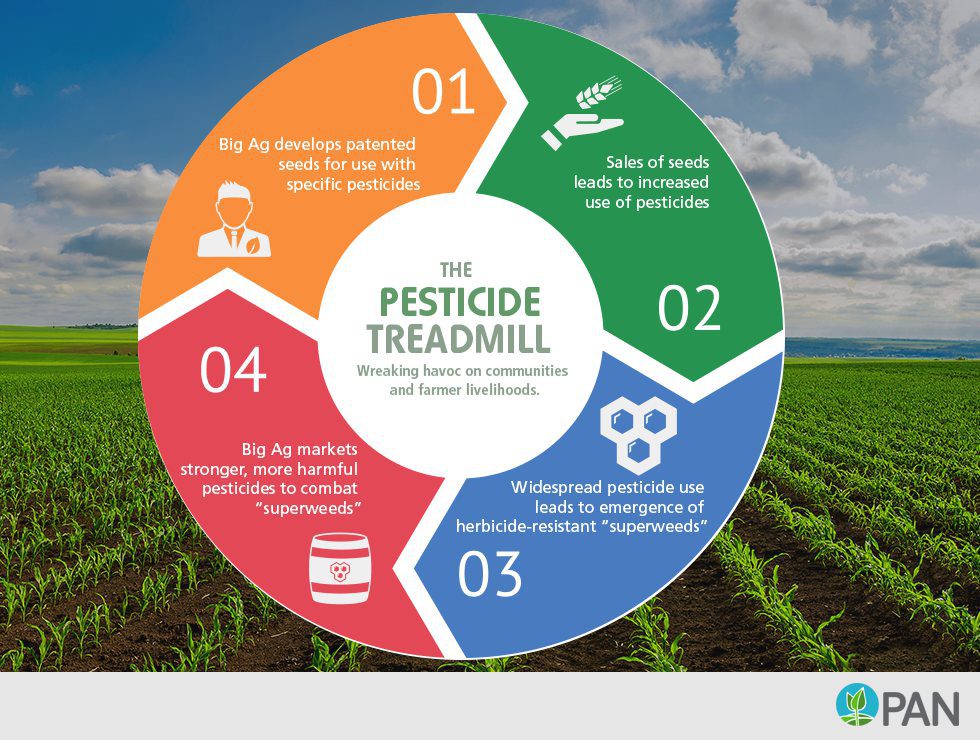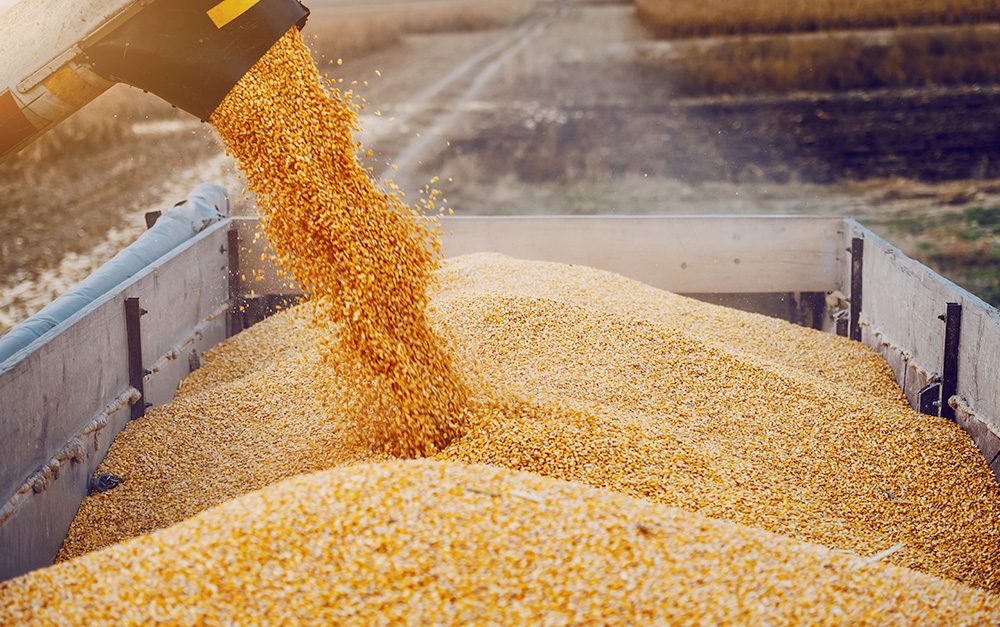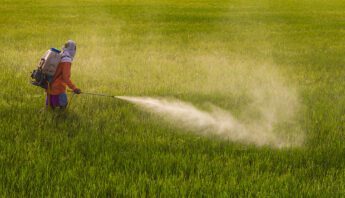For decades, conventional farmers have been trapped on a “pesticide treadmill.” When persistent organochlorine pesticides like DDT were phased out for their health and environmental harms, a new fast-acting generation of organophosphates were phased in. And the pattern continues.
With the introduction of genetically engineered (GE) crops, the pesticide treadmill has shifted into high gear.
Patented GE seeds are designed for use with specific pesticides, leading to increased use of these chemicals. And widespread application of these pesticides leads to the emergence of herbicide-resistant “superweeds,” among other things.
Industry’s latest answer to this problem? More GE seeds, engineered to be used with even more drift-prone and dangerous chemicals.

Speeding up the treadmill
Superweeds now plague more than 60 million acres of U.S. farmland, thanks to widespread planting of Bayer’s (now merged with Monsanto) “RoundUp Ready” crops.
When RoundUp Ready seeds were originally released, Monsanto (now merged with Bayer) assured farmers and the public alike that weed resistance to glyphosate — RoundUp’s active ingredient — would be a non-issue. They were wrong.
And now, Dow and Bayer (Monsanto) are making the same case in support of the “new generation” of 2,4-D/dicamba-resistant GE seeds, but the facts are in. We cannot outwit evolution.
More of the same
Designed to “fix” the problem of glyphosate-resistant superweeds, new GE crops — some still in the USDA pipeline awaiting agency approval — have been engineered for use with antiquated, hazardous pesticides like 2,4-D and dicamba.
But what’s going to stop weeds from developing resistance to these herbicides, too? Nothing, according to weed scientists, who predict a new epidemic of herbicide-resistant superweeds.
Meanwhile, Dow’s 2,4-D-resistant corn, approved in late 2014, is expected to drive a 20-fold increase in the use of 2,4-D over the next six years — from an estimated 5.2 million pounds in 2014 to over 100 million pounds by 2020.
This 2,4-D corn, part of Dow’s “Enlist Duo” seed line, is designed to withstand a patented combination of 2,4-D and glyphosate — ensuring continued widespread use of that herbicide, too. So industry’s response to the widespread harms of RoundUp Ready crops? More of the same.
High stakes
The pesticide treadmill wreaks havoc on farmer livelihoods in several ways, from the expense of patented GE seed (and the accompanying chemicals) to the cost of managing superweeds in the fields to the constant risk of seed patent lawsuits.
Many herbicides also drift from where they’re applied to harm neighboring, non-GE crops. Broadleaf plants like tomatoes and grapes, in particular, are susceptible to damage from 2,4-D.
These drift-prone chemicals are often linked to health harms. The World Health Organization recently completed an assessment of independent studies and determined that glyphosate is a “probable human carcinogen.”
And 2,4-D — the herbicide mixed with glyphosate in Dow’s recently approved “Enlist Duo” formulation — is a suspected endocrine disruptor that has been linked to cancer and reproductive harm. Children are particularly susceptible to its effects.
Use of these chemicals, driven up by GE crops, puts farmers, farmworkers and rural communities in harm’s way.
Taking a stand
In a 2015 poll, 90 percent of Iowa farmers reported feeling that “pest management is a never-ending technology treadmill.” And they are not pleased.
Recognizing the potential harm to their own crops and farmland across the country, conventional and organic farmers alike are speaking out loud and clear against Dow’s 2,4-D-resistant corn and soy. And many are nervous about potential drift damage from dicamba, when those crops come to market.
In the words of Iowa farmer Denise O’Brien:
“The whole suite of new GE seeds is a bad idea for farmers and farm communities. The pesticide industry is introducing one troubling GE seed after another.”
With rules governing GE crops up for review, we have a collective opportunity to help farmers off the pesticide treadmill. Even if Bayer (Monsanto) doesn’t like it.







